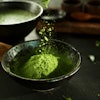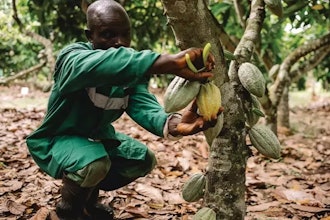PORTLAND, Ore. (AP) — The organic apples you buy in the grocery store will soon be free of a widely used antibiotic.
The National Organic Standards Board late Thursday rejected a petition to allow growers to use the antibiotic oxytetracyline beyond the existing expiration date of Oct. 21, 2014.
The U.S. Department of Agriculture's labeling standards generally prohibit food from being certified organic if antibiotics were used during production. But the threat of fire blight — a bacterial pathogen that infects flowers and trees — led to an exception for growers of apples and pears.
That exception was revisited in Portland this week as consumer groups and concerned citizens urged the board to maintain next year's deadline.
"If organics is going to market itself as a more responsible type of agriculture, then they need to live up to it," said Patty Lovera, the assistant director of Food & Water Watch, a Washington-based consumer group.
Farmers were already granted a two-year extension in 2011, and opponents worried that yet another delay would be sought two years from now.
"It's going to be disruptive no matter when you do it," Lovera said. "You have to pull the Band-Aid off and do it."
Though people on both sides of the issue want to eliminate the use of antibiotics, supporters of a 2016 deadline said alternatives must first be proven effective. Otherwise, growers might drop their organic certification if faced with the threat of fire blight devastating their orchards.
"Just as growing a tree takes time, so does research," said Diane Dempster, organic commodity manager at Charlie's Produce, a large Pacific Northwest wholesaler.
Most antibiotics sold in the United States go to livestock raised non-organically to help prevent disease and spur growth. Health officials have seen a sharp increase in superbugs in humans that are resistant to treatment with antibiotics, and believe it's connected to the heavy use of antibiotics in agriculture.
Extending the use of antibiotics in organic orchards for an extra two years would not have had the same impact on human health. Apples managed under certified organic farming systems comprise only about 6 percent of total U.S. apple acreage, most of it in Washington state, and a recent survey suggests at least half of those orchards don't use antibiotics.
But opponents of the extension said treating organic apple and pear trees with antibiotics does have an effect. And, aside from the impact on human health, the use of antibiotics on two fruits creates confusion for shoppers who expect produce labeled organic to be free of synthetic pesticides, fertilizers and antibiotics.
"These antibiotics are not allowed for any other use in organic agriculture — not for livestock, not for crops," said Pamela Coleman, policy analyst for The Cornucopia Institute, an organic advocacy group. "It's time for a uniform standard. No antibiotics."
Fire blight is like a gangrene of the branch, with a running, expanding canker down the limb. The canker can be relatively small or spread all the way down to the ground, killing the tree. Non-antibiotic methods of prevention and treatment include resistant varieties and rootstocks, pruning and the spraying of a copper sulfate. The copper, however, can damage the appearance of fruit, hampering a farmer's chances of selling it.
"It makes a Bartlett look like a Bosc," said Bill Denevan, a former grower in Santa Cruz, Calif.
Two alternatives to antibiotics — a yeast-based product called Blossom Perfect and a new, less damaging copper spray called Previsto — have performed well in trials, according to Ken Johnson, a plant pathologist at Oregon State University. But despite that promise, Johnson said he believes 2014 is probably too soon to make oxytetracyline off-limits at organic orchards.
Though the board rejected an extension, it approved a motion that asks the USDA to investigate options for allowing the emergency use of oxytetracyline until 2017.
Ken Mandley, an apple grower in Turtle Lake, Wis., said he turned to organic farming after deciding his allergies and other health problems were caused by environmental changes. Though he is battling fire blight this spring with the copper spray, he said antibiotics should remain on the table as a last resort.
"Growers probably would not drop their (organic) certification until they were forced to use the antibiotic," Mandley said. "If it's a choice between losing your orchard and using the antibiotic and losing certification, growers will use the antibiotic and keep their orchard."
Would he put himself in that group?
"I would," he said. "I would do it reluctantly. But I have enough invested, both money and time, that I can't just say it's OK for my orchard to die."






















